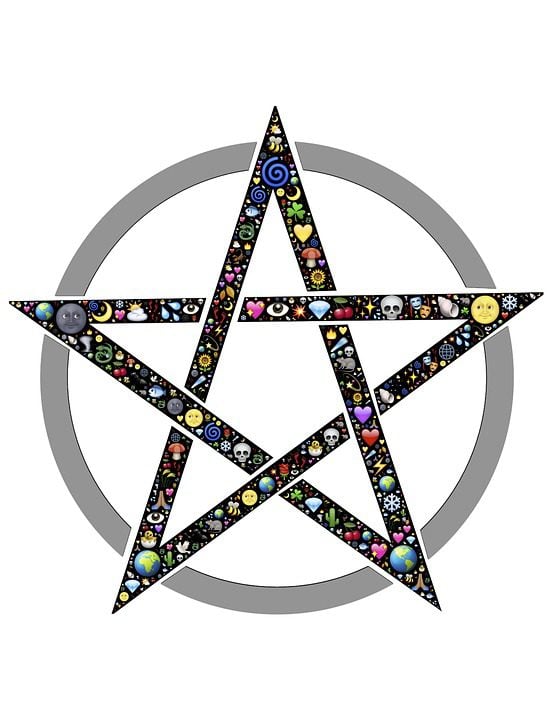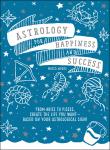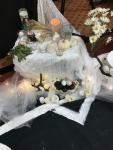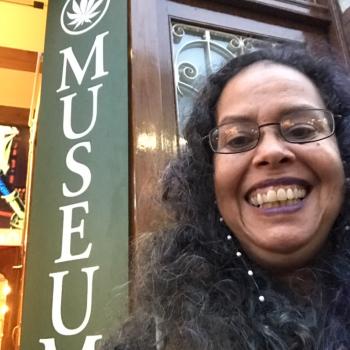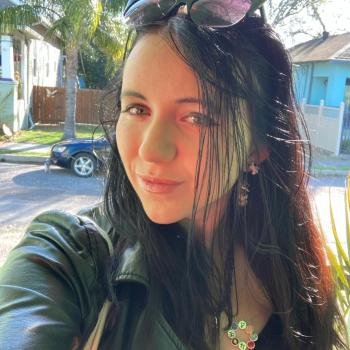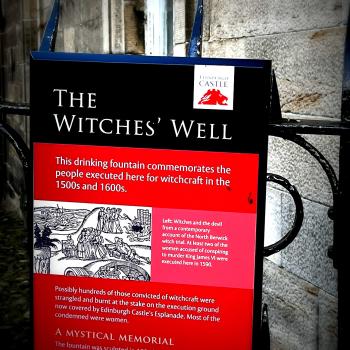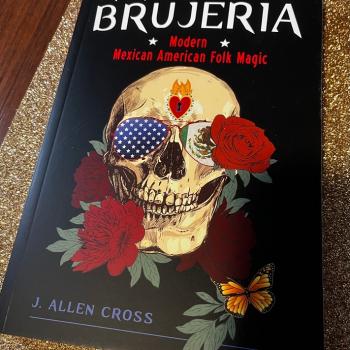This week Atlantic published an article about Black Witches titled The Witches of Baltimore – Young black women are leaving Christianity and embracing African witchcraft in digital covens. The author Sigal Samuel, makes a lot of assumptions in this piece, and most of them are, I have to say, wrong.
This article is problematic on many levels. Towards the beginning of the piece author Samuel writes ” African American witchcraft originated in West Africa, the birthplace of Yoruba, a set of religious traditions focused on reverence for ancestors and worship of a vast pantheon of deities known as orishas. ” I disagree with this assertion both as an Anthropologist and a practitioner. While the Yoruba practices and religion ( note Yoruba is not a set of traditions but rather a people) goes back historically to at least the 4th century BCE, the conclusion that it is, or was, the beginning of African -American Witchcraft is a reductionist giant leap on the author’s part. The Yoruba faith may be the basis for Ifa, as it is widely referred to today, she seems to gloss of Haitian Vodou and New Orleans Voodoo which are more directly related to the practices of the Dahomey region, the Igbo people and other sources. Now the elephant in the room here is that she was discussing Black Witches, and the Third Annual Black Witch convention. While many Black Witches, myself included, practice African Traditional Religions (such as Voodoo and La Regla Lucumi) this is not the same as Witchcraft. In fact many of these traditions have strict prohibitions against practicing Witchcraft, a reality which seems to be lost on Samuel.
The author goes on to say ” Those traditions accompanied West Africans who were brought to the Americas as slaves, and were eventually combined with Western religions, such as Catholicism, that many slaves were pushed to embrace.” Again it is much more complicated than she presents here. Just as some practitioners embrace both Witchcraft and African Traditional Religions, some also practice Christianity. I got more and more upset as I continued to read some of the woefully misguided information in this article. I wondered if I was one of the few Black Witches with her hackles up over this. I asked some of my friends, a few of which even attended the convention, and here’s what they had to say.
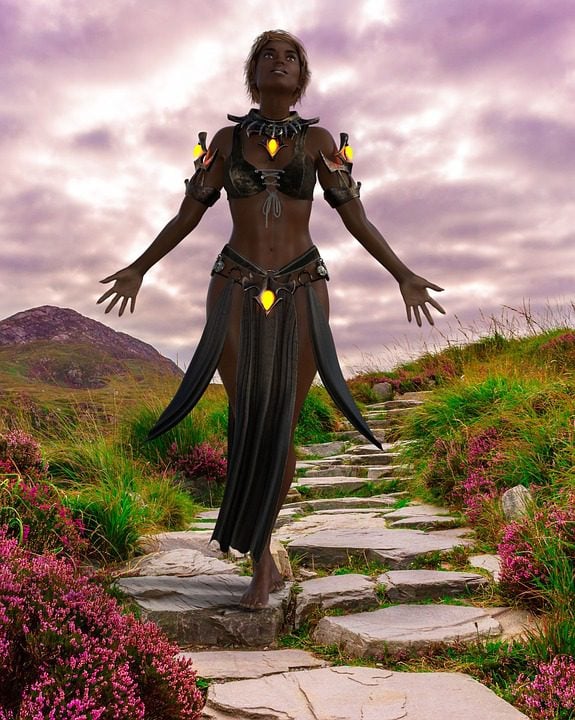
Bast DeLuna, a Black Witch, said the article had her vexed and commented ” I feel like it is rather problematic: this article seems written from a skewed male perspective; it is not objective. The classifications of “digital religion”, casting spells using emojis (wtf?) appear as an effort to minimize our movement from belief systems that were never supposed to serve us in the first place. And Astrology is “new age”??? No sir, it is an ancient practice that is employed by practitioners and new age seekers alike! ” I certainly agree, when my brain got to the part about casting spells with emojis, I think it died a bit. I feel like it trivializing and insulting what we do on so many different levels.
While Lisa Jade NC, a Black Witch from Canada wanted to say “My feedback on the article, not the event: At first glance the article is a simple retelling of the convention. However, the fashion in which the non POC author details it only compares it all to the “normal” of her world of white women. The Black Witch Convention and Black Witches generally would have been better served by an article that celebrated the rise in black women connecting to their ancestry and finding themselves through Witchcraft.”
Wow, an article written that uplifts us … that would be a welcome change. I hope this author really considers her own intent and the impact that pieces like this have.
Devin-Rose Thomas, Black Witch and owner of The Unique Foodie Witchery, actually attended the event and had this to say: ” I remember seeing her at the convention and just her presence made me uncomfortable. I knew she was a reporter the second I saw her, however, I don’t remember seeing her talk to anyone. The fact that she’s trying to compare black conjure to white witchcraft straight from jump shows that she didn’t really do her research. It’s not that black millennials are just now beginning to practice. No, I’ve been practicing since I was a teenager. It’s that we are tired of hiding. We’re tired of things being taken from our practice and twisted for others use. We are tired of sitting back and not being seen. And a lot of us have been practicing without even being away because our families have taught us “home remedies” that have been passed down through generations. Then when we are being called to do more, and we can no longer ignore the ancestors we are finding others that understand which is why we have “safe spaces” and groups because we need the understanding that we don’t get elsewhere.”
Christina Springer, artist and activist, had an entertaining and eloquent response: “There aren’t enough knives or solvents to scrape and dissolve the layers of White Supremacy off of this article. I don’t even know where to begin. Perhaps we could start with “African American witchcraft originated in West Africa, the birthplace of Yoruba, a set of religious traditions.” That sentence reminds me of a note I saw recently from a teacher asking children to go home over the weekend and come back with Indian names like “One Who Loves Barbies.” It’s so wrong. The tribe of West Africa brought some Yoruba to America. See how foolish that sounds? You don’t even really need to suggest perhaps that Author Becky was unaware that she failed geography and didn’t even bother to avail herself of Wikipedia. Or did she? See? White Supremacy. What editor let her get away with that? Oh. Most likely a White one.
Or maybe Becky’s assertion that African traditional religions were “combined with Western religions, such as Catholicism, that many slaves were pushed to embrace.” Push? As if the verbs maimed, hanged, burned, beaten and whipped are suddenly synonymous with “push.” Enslaved Africans were not nudged, incentivized or highly encouraged. But, then, she completely throws her journalistic credentials out of the window at the end of the article when the Black women reveal to her that “their ancestors were harshly punished for their rituals.” So which was it? “Harshly punished” or “pushed?” One is a moderately accurate description of White brutality, the other is erasure. She obviously doesn’t know or care. She just wants the scoop on titillating Black witches…fuck all the boring rest.
Finally, can we talk about the use of the word witch when referring to an Iyalorisha? Nobody died so folks could make finger paint faiths. An Iyalorisha is a priestess, which connotes some amount of training, study, and rigorous service to community. (Usually, these days some folks be selling Ocha to the highest bidder. ) Witch is a largely European construct. I’m good with witches of any color. I’m good with people discovering spiritual practices that enrich and enliven their lives. But, get the facts straight. Celebrate our differences. Cherish our unique histories. Honor the fact that our ancestors took great personal risk to save our traditions. African Traditional Religions are not a melting pot or a buffet.”
This is only a few women’s thoughts, but mind you they are the thoughts of Black women who deserve to tell their own stories, describe their own spirit, and be more than done with anything less than respect. I hope Sigal Samuel and other writers like her take this to heart before and stop before they attempt to write something like this again. I’ve dedicated my academic and spiritual life to providing accurate and respectful information about Black Spirituality and believe me the conversations will continue. The struggle is real. And as for my Black Witches who are also readers I would love to hear what you think in the comments below, and remember to share and like !


